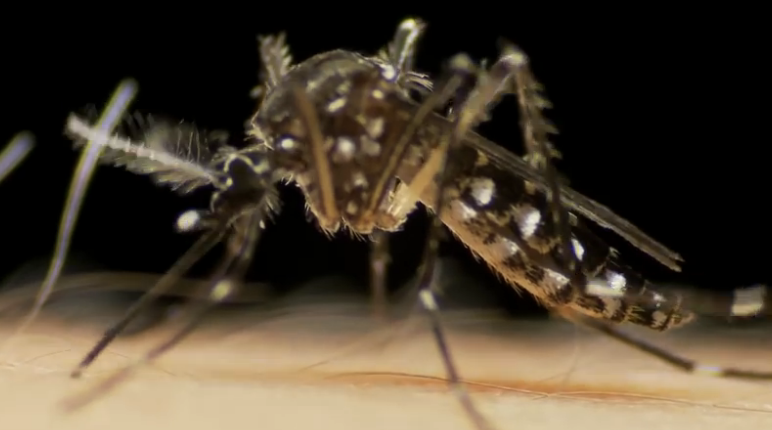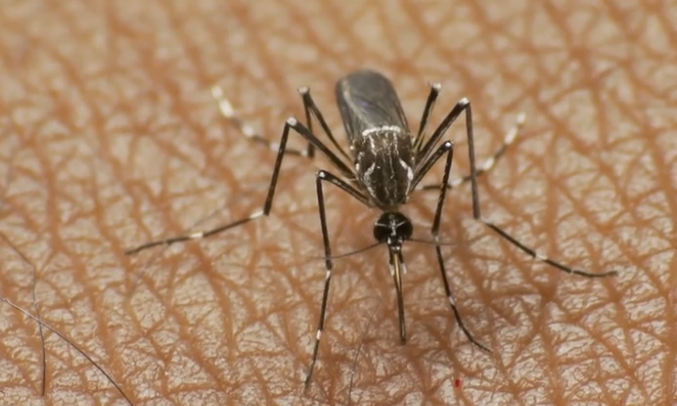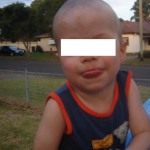Dengue fever is an illness which occurs due to the transmission of the dengue virus via the bite of a striped mosquito called ‘Aedes aegypti’.
Minor cases of dengue fever may cause symptoms like pain in joints and muscles, high fever, and skin rashes. However, in serious cases such as dengue hemorrhagic fever, it can lead to severe consequences like shock, excess bleeding, and sudden low blood pressure. At times, it can also be fatal.
Dengue fever is prevalent throughout the world and millions suffer from the illness every year. Still it is more dominant in western Pacific islands and Southeast Asia. Reports also show that dengue fever recently has become more widespread in Latin America and Caribbean.
No vaccine is currently available for dengue fever. But it is possible to avoid the growth and spread of the virus by eliminating or reducing mosquito habitats in those regions where it is prevalent.
Dengue fever: Is it contagious?
The dengue virus does not spread via direct contact with a patient. It is also spread via the bite of an infected mosquito.
It is however important to note that patients are carriers of the virus till the second episode of fever is finished. Till that time, they can transmit the virus if a mosquito bites them. Hence, they are kept under mosquito nets for that particular duration.
Symptoms of dengue fever
Usually in mild cases affected individuals do not show signs or symptoms. Symptoms are typically noticed 4 to 10 days after being bitten by the mosquito carrying the dengue virus.
Some of the signs and symptoms of dengue fever are as follows:
- Headache
- Very high fever with body temperatures reaching approximately 41 C or 106 F
- Nauseated feeling and/or vomiting
- Pain may occur in the backside of the eyes
- Slight bleeding may appear from nose and gums
- Rashes: Measles-like skin rashes can erupt all over the body in about 50 to 80 percent of patients with observable symptoms. The rashes may be pale pink in color or have a flushed appearance. It may initially affect the extremities and then migrate to the rest of the body.
- Muscle pain, bone pain, and joints pain
Majority of the affected individuals recover soon within a week. However in few cases of dengue fever, symptoms can worsen and become fatal. There may also occur injuries of the blood vessel causing blood to leak. The platelets levels may also lessen considerably. This may lead to other symptoms like:
- Severe vomiting
- There may occur bleeding underneath the skin, which may look like marks/scars.
- Problems may occur in the major organs like liver, lung and heart. The nose and mouth may elicit extensive bleeding
- Severe pain may occur in abdomen
Dengue fever and its effect on the platelet count
The dengue virus affects the platelet count adversely. Normally, a single platelet stays in the body for 5 to 10 days and then as the body requires, the quantity of the platelet is refilled.
Dengue fever causing dengue virus obliterates the ability of the body to produce fresh blood platelets. The range of platelet count of a normal, fit person is “one hundred and fifty thousand” to “two hundred and fifty thousand” per μl of blood. Once the dengue virus infects the body the platelet count starts to drop and if it falls below hundred thousand per μl, it is serious and requires quick medical attention.
If the platelet count falls below fifty thousand per μl, it is said to be fatal. A vital thing to remember is that platelets are also blood-clotting cells, therefore if platelet count decreases then it can stop the formation of clots. This further can cause internal bleeding and external bleeding too, which is not easy to stop if it begins.
Causes of dengue fever
When any of the four kinds of dengue viruses are transmitted into the body, it leads to dengue fever.
When a dengue virus infected mosquito bites, these viruses are transmitted into the body. These mosquitoes can be seen in and around the areas where people dwell and reside. A mosquito becomes infected with the dengue virus when it bites a person suffering from dengue fever; then this mosquito carrying the dengue virus can spread it by biting other fit people. Usually an epidemic of dengue fever occurs because of excess and free growth of infected mosquitoes.
When a dengue patient recovers, the patient becomes immune towards that virus. Still, there are other 3 types of dengue viruses, to which he/she is susceptible. When the person is infected by dengue fever for the 2nd, 3rd, and 4th time, it is expected that the person may suffer from serious type of dengue fever that is ‘dengue hemorrhagic fever.’
Few possibilities which can increase the vulnerability to developing dengue fever are as follows:
- People residing in the tropical and subtropical regions; especially areas such as the Pacific island, the Caribbean, Latin America and Southeast Asia; have higher chances of being infected by dengue virus.
- People, usually kids, who were dengue patients, are more prone to suffer from the more severe kind of dengue fever.
Diagnosis of dengue fever
The symptoms of dengue fever are very similar to those elicited by other diseases such as typhoid fever, malaria, and leptospirosis. This leads to confusion and therefore the illness is not very easy to detect.
The doctor will require complete details about the medical history and travel itinerary of the patient. Laboratory tests have to be done to diagnose whether dengue virus is present or not.
Treatment and prevention of dengue fever
- No particular method is adopted to treat dengue fever. Medical experts may recommend several methods like consumption of lots of water to avoid dehydration resulting from vomiting and high fever.
- Also fever and pain can be lessened with the help of acetaminophen. Intake of pain killers such as aspirin and ibuprofen is not recommended as these pain killers can increase the vulnerability to bleeding complications.
In case of severe dengue fever some extra steps may be required, these include:
- Patient has to be hospitalized with supportive care
- Blood pressure has to be monitored regularly
- Administration of electrolytes and fluids through intravenous means
People who live or travel to areas deemed as an ‘endemic dengue fever region’, can avoid being infected by dengue fever if relevant measures are taken to avoid being bitten by mosquitoes that carry the dengue virus.Some precautionary measures to avoid being bitten by such mosquitoes are as follows:
- Stay in air-conditioned or well-screened rooms, thereby keeping mosquitoes out of the house.
- When a person visits such endemic dengue fever regions, then he/she should wear sufficient clothing that limit the exposure of skin. For example, long sleeved shirts and pants, etc.
- Mosquitoes are more active in dusk, late evening and dawn. During such times outdoor activities should be avoided.
- Mosquito repellant can be used. Wipe out or decrease the habitat of mosquitoes.
Dengue Fever Pictures






